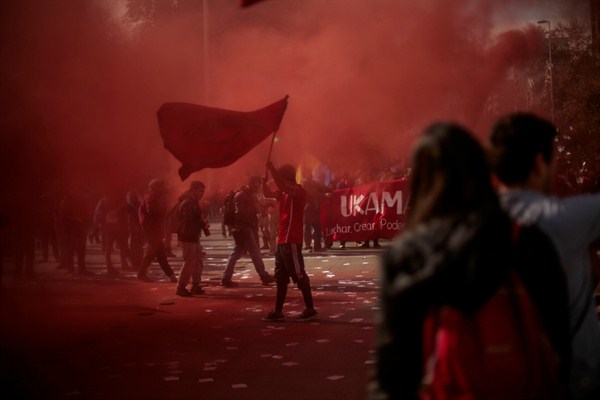Eyebrows arched in Chile at the end of July when President Michelle Bachelet canceled her participation in a summit of MERCOSUR leaders in Caracas, Venezuela, to focus on her domestic agenda. Critics suggested this was because her signature education reforms are in trouble. The Chilean president was elected for a second time at the end of 2013 and inaugurated in March with a mandate for overhauling the country’s education system, and she has moved quickly to introduce the first phase of a process that will ultimately lead to universal free higher education by 2020.
Students have been a well-organized and vocal constituency in Chile for some time, effectively calling attention to their demands through street protests and political pressure. The movement created particular difficulties for Bachelet’s predecessor, Sebastian Pinera, and the 2013 presidential campaign highlighted the need for significant reforms. In May, the administration sent the first part of its reform package to congress. It seeks to increase government support for education while curtailing the profit motive in state-funded schools, increasing and encouraging a more egalitarian approach for student access from nursery school through university.
The reforms have become complicated, however, particularly within her own coalition, which is further to the left than her first coalition government in 2006-2010 and seeks greater accommodation to the demands of the student movement, including active consultations. The conservative opposition has also expressed concerns. Education policy has been debated for years within Chile, but since the election it has become political ground zero, a symbol of broader social reform with significant implications for spending, workforce development, social inclusion and economic competitiveness. Education Minister Nicolas Eyzaguirre has acknowledged a lack of diplomacy in developing the reforms but has otherwise held firm, suggesting that postponing or diluting the effort could put Chile on the path to populism.

